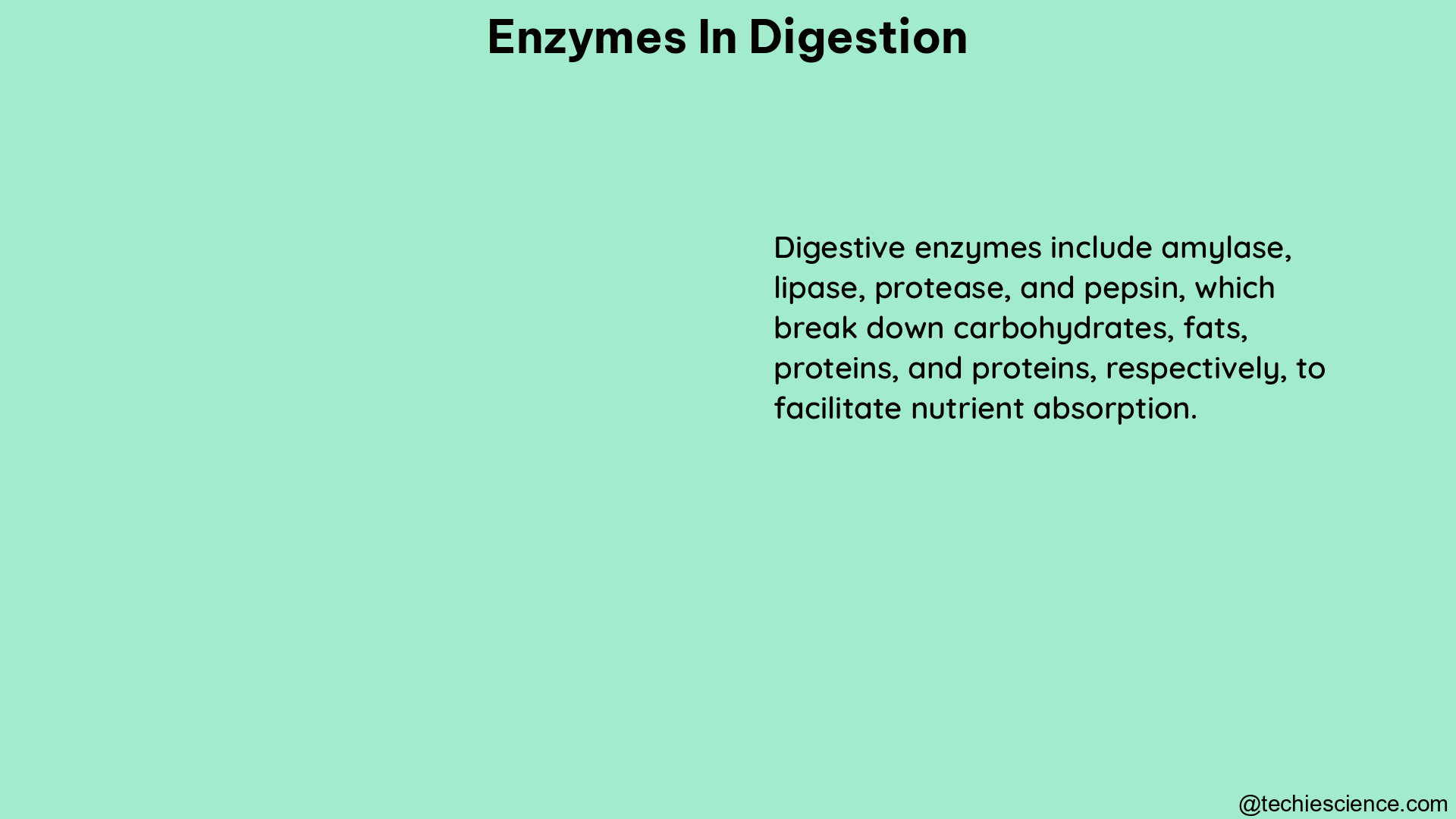Enzymes are the unsung heroes of our digestive system, playing a vital role in breaking down the food we consume into smaller, more absorbable components. These remarkable proteins catalyze a wide range of enzymatic reactions, enabling our bodies to efficiently extract nutrients, energy, and essential building blocks from the macronutrients we ingest. In this comprehensive guide, we will delve into the intricate world of digestive enzymes, exploring their types, functions, and the importance of maintaining a healthy balance for optimal digestive health.
Understanding Digestive Enzymes
Digestive enzymes are specialized proteins that accelerate the chemical reactions involved in the breakdown of food. These enzymes are produced by various organs and glands within the digestive system, including the salivary glands, stomach, pancreas, and small intestine. Each type of digestive enzyme is tailored to target specific macronutrients, ensuring a comprehensive and efficient digestion process.
The Three Main Types of Digestive Enzymes
-
Amylases: Responsible for the digestion of carbohydrates, sugars, and starches. Amylases break down complex carbohydrates into simpler sugars, such as glucose, which can then be absorbed by the body.
-
Proteases (or Peptidases): Break down proteins into smaller amino acids, the building blocks of our cells and tissues.
-
Lipases: Digest fats, breaking them down into fatty acids and glycerol, which can be readily absorbed by the body.
Enzyme Activity and Potency
The activity or potency of digestive enzymes is a measure of how much enzyme is needed to accomplish a specific reaction within a specified time. This is an important factor in determining the effectiveness of digestive enzyme supplements and ensuring consistent quality across different products.
The industry standard for measuring enzyme activity is the Food Chemical Codex (FCC), which assigns each enzyme its own FCC potency (activity) unit. This standardization not only demonstrates the amount of activity of each enzyme in a product but also allows for comparison between different FCC-labeled products.
Diagnosing Digestive Enzyme Insufficiency

Functional medicine labs can use various diagnostic tools to assess digestive enzyme levels and identify potential insufficiencies. These tests often involve analyzing blood, stool, and salivary samples, providing valuable insights into the overall digestive function.
Comprehensive Stool Tests
Comprehensive stool tests are particularly useful in evaluating digestive enzyme levels. These tests typically include the measurement of pancreatic elastase, a reliable marker of pancreatic exocrine function. Elevated levels of pancreatic elastase and other fecal markers of maldigestion can indicate digestive enzyme insufficiency, which may be a contributing factor to various gastrointestinal issues.
Blood and Salivary Tests
In addition to stool tests, blood and salivary samples can also provide valuable information about digestive enzyme levels. Blood tests may measure the levels of specific enzymes, such as amylase and lipase, which can indicate pancreatic function. Salivary tests can assess the activity of enzymes like salivary amylase, which plays a crucial role in the initial stages of carbohydrate digestion.
Complementary Digestive Support
While digestive enzymes are the primary players in the digestive process, other secretions and compounds also play critical roles in maintaining optimal digestive function. These complementary factors can work synergistically with a digestive enzyme formula to support overall digestive health.
Hydrochloric Acid (Stomach Acid)
Hydrochloric acid (HCl), produced in the stomach, helps to create an acidic environment that activates certain digestive enzymes and aids in the breakdown of food. Adequate stomach acid production is essential for proper digestion and nutrient absorption.
Bile
Bile, produced by the liver and stored in the gallbladder, is a crucial component in the digestion and absorption of fats. Bile acts as an emulsifier, breaking down large fat molecules into smaller ones, making them more accessible for lipase enzymes to digest.
Complementary Supplements
In addition to digestive enzymes, other supplements may be beneficial in supporting overall digestive function. These may include:
- Betaine and Pepsin: Betaine HCl and pepsin can help increase stomach acid production, aiding in the activation of digestive enzymes.
- Zinc Citrate: Zinc is an essential mineral that plays a role in the production and activity of digestive enzymes.
- Mixed Strain Probiotic Supplement: Probiotics can help maintain a healthy gut microbiome, which can influence the production and function of digestive enzymes.
- Aloe Vera Whole Leaf Juice: Aloe vera has been shown to have anti-inflammatory properties and may help soothe the digestive tract.
By understanding the intricate roles of digestive enzymes and incorporating complementary support, individuals can optimize their digestive health and ensure the efficient absorption of essential nutrients.
Conclusion
Digestive enzymes are the unsung heroes of our digestive system, playing a crucial role in breaking down the food we consume into smaller, more absorbable components. By understanding the different types of digestive enzymes, their functions, and the importance of maintaining a healthy balance, individuals can take proactive steps to support their overall digestive health. Through comprehensive diagnostic testing and the incorporation of complementary digestive support, individuals can ensure their digestive system is operating at its best, allowing them to derive maximum benefit from the nutrients in their diet.
References:
- What are Digestive Enzymes & How to Test Your Patients’ Levels
- Digestive Enzyme
- Digestive Enzymes
- The Role of Digestive Enzymes in Health and Disease
- Digestive Enzymes: Function, Sources, and Supplementation
Hey! I am Sneha Sah, I have completed post graduation in Biotechnology. Science has always been fascinating to me and writing is my passion. As an academic writer my aim is to make Science easy and simple to learn and read.